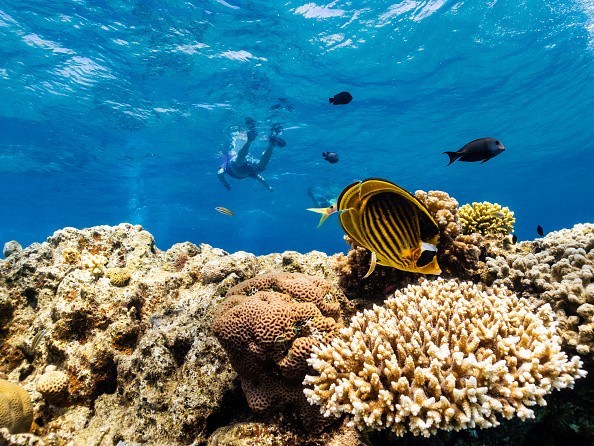New research raised concerns over the worsening impact of climate change on marine life, especially the coral reefs. Researchers revealed that half of the world's coral reefs could encounter challenging and unsuitable conditions by 2035.
The research was published in the PLOS Biology journal, and the researchers who conducted the study are from the University of Hawaiʻi at Mānoa.
Coral reefs

Coral reefs are also called the rainforest of the ocean. It serves as a habitat for many marine species, a shelter to reproduce, and a place to get food for nutrition.
According to NOAA, about 25% of ocean fish rely on corals. The benefits communities get from corals are crucial to alleviate the impact of storms and protect coastlines from extreme flooding. Healthy coral reefs help the marine environment and animals. However, coral reefs have been threatened by diseases, pollution, climate change, and poaching.
Environmental stressors
Furthermore, recent research highlighted a pressing concern showing that half of the coral reefs in the world could reach unsuitable conditions, noting that climate change and the warming of the oceans worsen.
Their research reveals that the result would be worse than anticipated because of climate change-induced stressors. In addition, corals could face multiple stressors that the researchers must understand to increase the coral reefs' possibility of survival.
The research employed the CMIP5, a useful experimental framework, to improve knowledge about climate change. It helped them assess five environmental affecting the coral ecosystems. It includes ocean acidification, tropical storm, land use, sea surface temperature, and population projections.
Ultimately, the researchers discovered their findings depending on the environmental stressors with the experimental framework projections.
- 2050 unveils the median year projection for the world's coral reefs to become unsuitable, considering a single stressor.
- 2035 is the next projection for the world's coral reefs to become unsuitable, considering multiple stressors.
- 2055 shows that most coral reefs (99%) reach unsuitable conditions, considering at least one stressor.
- 2100 reveals that 93% of the global reefs could be under threat, considering two or more stressors.
The research findings have raised concerns about the impact of the stressors on coral reefs, which play a significant role in the oceans and the livelihood of humans. Understanding the stressors affecting coral reefs' health can help save them from devastation.
According to the study, the researchers aim to proceed to the next phase of their research: how climate change could affect individual coral species. The purpose is to determine which coral species can be more vulnerable and withstand or survive unsuitable conditions.
Furthermore, the study's co-author Erik Franklin explained the importance of understanding the complete anthropogenic impact and stressors affecting the coral reefs. In this way, the researcher can grasp the overall risks of the coral reef ecosystem. Franklin is an Associate Research Professor at the University of Hawaiʻi at Mānoa.
If the survival of coral reefs remains unchecked, it will have a disastrous impact on humans and aquatic animals.
For more similar stories, don't forget to follow Nature World News.
© 2026 NatureWorldNews.com All rights reserved. Do not reproduce without permission.





